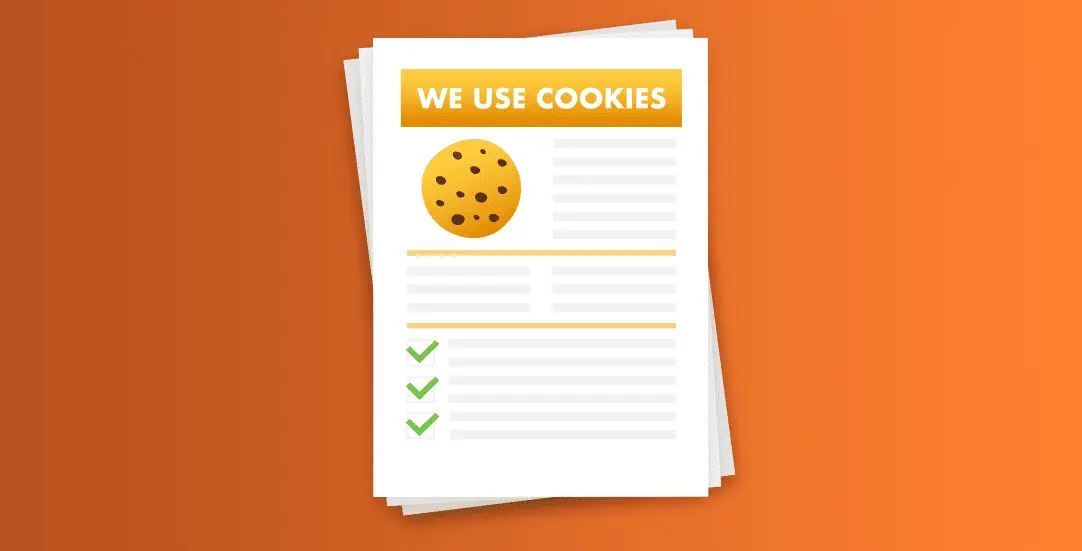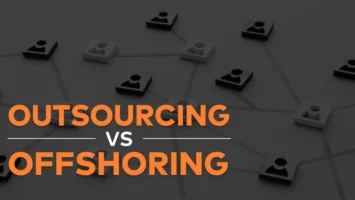More people have become aware of the term http cookie ever since GDPR has been passed. The implementation of the CCPA has also raised awareness and concern about it. If you have a website, you must often wonder what cookies are and how to have an Advanced Cookies Management system.
What are cookies?
Cookies are basically pieces of code saved by your website on the web browser used by your users when they initiate their session. They serve many purposes, with the most important ones being:
- Session management
- Tracking
- User personalization
This guide introduces you to the world of cookies and what you should do to gain full control over them on your website. This is your ultimate cookie guide.
A computer cookie is known by different names. It is referred to as:
- HTTP Cookie
- Internet Cookie
It gets its name from the term “magic cookie,” which means a packet of data received and sent back by a computer without alteration. It is a packet of information. Whenever someone visits your website, the cookie is sent to their computer. Their computer stores it in the form of a file within the web browser.
Cookies are not exactly programs, but simple text files. In the field of ad tech, they help in tracking users across the web.
Magic Cookies & HTTP Cookies
As mentioned above, Magic cookies can be considered the original term where computer cookies got their name from. This referred to packets of data sent and received without changes. More often this was used to log into a database system. The concept predates the current version of the cookie, which can better be referred to as http cookie. HTTP cookies are versions of magic cookies, designed for internet browsing.
The purpose of an http cookie is to help your website keep track of the visits and activities. This is no exactly a bad thing in itself. For example, most online stores require cookies to track items in a user’s shopping cart as they are exploring their website. If the current privacy and confidentiality regulations were to curb cookie web completely, the shopping cart would reset to zero every time your potential buyers clicked on a new product link on your website.
Your website may also use cookies to record the login information of your users like “Remember me” option. This allows users to quickly login on most often used websites. Cookies can also store information on what they downloaded or visited previously. This is perhaps where Advanced Cookies Management empowered through GDPR and other regulations will become more important.
Types of Cookies
As you may have learned from the above-mentioned definition of cookies, there are different types of them. They vary in terms of the activities they track.
First-Party Cookies
First-party cookies, as the name suggests, are set by your website. This is in the context of Third-Party Cookies that are set by other domains. The main features are as follows:
- The collected data is usually used for calculating page-views, number of users, and sessions
- That data may be shared with advertisers and third-parties for ad targeting, but only in compliance with GDPR and CCPA
- Google Analytics and other tools use first-party cookies to study user behavior and create reports for your understanding
Third-Party Cookies
As the name suggest, a third-party http cookie is set by other domains on your website. For example, they are created when you add the following third-party elements:
- Ads
- Social plugins
- Chatbots
They can also track your visitors and save their data for the purposes of behavioral advertising and ad targeting. For example, consider that you have added a link to a YouTube video in your blog post. Every time a visitor clicks on this link, a YouTube cookie gets added to their browser. The cookie will track the user until its expiry.
Secure Cookies
Secure cookies are set by websites that meet the HTTPS protocol. They feature encrypted data. They are more often used by e-commerce websites on their checkout pages. Their main purpose is to enable safer transactions. Online banking websites or any website where financial transaction takes place or deals with financial data is required to use secure cookies.
Session Cookies
If you want to learn about session cookies, it will help to know more about what are browser cookies. They are created for each session and expire when a user leaves their web browser. They are commonly used by e-commerce websites for the following purposes:
- To keep track of the product added to the cart
- To calculate each session for analytical reasons
- To ensure that users stay logged in during a session
If this type of cookie web is not used in an online store, the items added to the cart will be removed when the user clicks through to the checkout page. The server will also lose track of the user.
Persistent Cookies
These cookies can be considered as the opposite of session cookies. They will usually stay on your visitors’ browser for a long time. Some of their key features are as follows:
- They must have an expiration date
- The expiration date can range from just 1 second to 10 years
- You can use them to keep track of a single visitor and their interaction on your website
- These cookies assist users to stay logged-in on your website even when they return for another session after disconnecting
How to Check Cookies Used by a Website?
The GDPR, CCPA, and other regulations require you to check cookies on your website. In order to comply with the laws, you should know what cookies are set on your website and their purposes. It is easy and quick to determine the cookies being used by your website.
Advanced Cookies Management is a crucial aspect of compliance. It is recommended to follow these steps to check what coolies your website is following. The steps vary slightly from one browser to another, but the concept is similar. The knowledge of type of cookies on your website and their classification can help determine which ones need consent to be used.
Open a new Private window in Chrome and enter and open your website. Open the Chrome Developer Tools using the following path:
- View
- Developer
- Developer Tools
Then open the Application tab. The cookies will be similar in names to the services they are used by. Run a google cookies search by their names to learn about them.
The Developer Tools in Mozilla Firefox can be used from the following pathway:
- Tools
- Web Developer
- Storage Inspector
The pathway for the Safari browser are as follows:
- Develop
- Show Web Inspector
When it comes to meeting the GDPR and CCPA compliance requirements, you have to be careful about not just first-party cookies but also Third-Party Cookies created on your website. Using a plugin to keep track of cookies loaded by your site is the best way to overcome this challenge. Meeting compliance will require identification and getting the explicit consent of users before the scripts can be injected.
Cookies, GDPR and CCPA How to Connect that?
Almost all companies with websites that generate at least some traffic will make use of cookies. If you have a website, you will also want to track the online experience of your visitors. The global best practices in the disclosure of the use of cookies and obtaining consent of visitors for their use have so far received intense scrutiny. But you will now find ways to meet the standards created by the following 3 regulations:
- EU’s General Data Protection Regulation (GDPR)
- California Consumer Privacy Act
- EU’s ePrivacy Directive
So what are GDPR & CCPA and what should you know about them?
GDPR
The GDPR standardizes the data protection law across the European Union. It lays down strict rules for the control and processing of identifiable information. If your website will collect data from EU citizens, it must meet the requirements under this law. Failing to comply can attract tens of millions of Euros in fine. The GDPR is known by many names including Cookie Law and Data Protection Law.
CCPA
When it comes to websites, wordpress and cookies, you may also have to comply with the CCPA. This Act comprises of a series of personal data and privacy protection laws passed by the State of California. It is similar to the GDPR in various ways. So once you implement GDPR, you will find it easier to adapt to it. However, there are some differences too. So, it is better to study this Act in-depth and meet its requirements.
Is your WordPress Website cookie GDPR & CCPA Compliant?
So, how do you ensure that your WordPress website’s cookie policy is GDPR and CCPA compliant? A look at the relevant requirements under these regulations is the right place to start with:
GDRP Requirements
If you want your WordPress website’s cookies policy to comply with GDPR, it must meet the requirements by including the following features:
- Cookie banner
- Option to block cookies
- Privacy policy
- Cookie policy
- Option to view the collected data
- Processing agreement
- SSL connection
- Agreement to send data within 1 month of a request
Once you make these changes to your website, you will have less to do to meet the CCPA requirements.
CCPA Requirements
CCPA has varying degrees of requirements in different areas. Some of the most important cookie related requirements are as follows:
- Cookie consent banner
- SSL connection
- Privacy policy
- Do not sell my information details
- Age verification
- Processing agreement
- SSL connection
- Processing agreement
Using Plugins for Advanced Cookies Management
Using the best cookie plugin that ensures GDPR and CCPA cookie consent and compliance is the simplest and fastest way to ensure that your WordPress website complies with this aspect of these regulations.
So how does a plugin Detect Cookies and address this pressing challenge?
Once the plugin is installed, it will add a message bar on your website. It informs visitors that your WP website uses cookies and provides them with the option to accept or opt-out of the use of cookies. The cookies will be set up on your website based on the consent received from the visitors.
The ideal plugin will also work as a Coockies logger with PP generator. It must translate all the requirements of the regulations to the language of WP security.
The Best Cookies Management Plugin
The best Advanced Cookies Management plugin must make your website comply with the privacy laws related to the use of cookies on your website. It must provide the following key features:
- It must add a cookie notice banner to your website whenever someone visits. This banner or bar must notify the visitors of the use of cookies on your website and whether it is restricted to all visitors or those from EU or California.
- It must scan your WordPress website for cookies and add them to your cookie list.
- It must enable or block the scripts of the cookies based on whether the visitor gives a consent or not.
- It must maintain an audit log of the consents received from users
- It must provide consent withdrawal options
Best Practices
The implementation of effective http cookie management on websites should not just be limited to the technical aspects. Installing and activating the best plugins can help address the technical side of it. However, you must also develop effective controls around cookies at the organizational levels as well. Some of the best practices in this regard are explained as follows:
- Training must be provided to senior leadership in these laws and regulations. Steps must be taken to develop a robust compliance management system to address the usage of cookies.
- Customer service must keep track of consumer complaints. This is important in immediately identifying and addressing potential compliance gaps.
- Legal department must stay up-to-date with the ever-changing regulations, laws, and court rulings. The rules related to cookies keep changing.
- External vendors must be monitored to ensure they are also in compliance with cookie web and privacy laws.
Your technical teams should also consider how any changes to your websites, products, and systems can affect your compliance with the laws and regulations.
How to Choose the Best Plugin?
The best wordpress and cookies plugin should be selected based on a number of factors. The most common factors include the size and scope of your website, the technical know-how of those managing your website, importance of cookies for your business’ advertising and promotion, and the types of cookies that are used on your site.
It is not just these factors that you need to consider. You must also ensure that the plugin has the right features to achieve optimal compliance. Some of the key features you must look for, include:
- Age Verification: You must be able to limit access to your website based on the age limit of the users.
- GDPR & CCPA Disclaimers: Disclaimers within the my account form to allow users to request or edit data removal from their personal data.
- Geolocation: Age verification form may be shown to all users or only based on user location.
- Right to be Forgotten: Users must be presented with an easily-accessible form to request deletion of all their stored information.
- Personal Data Access: Users must be able to access their currently stored personal data through a form.
- Privacy by Design: The http cookie plugin must make it easy for you to encrypt, erase, and manage all the user data from within your WordPress admin panel.
- Pseudonymisation: All user data stored in your databases must be pseudonymized and kept safe. The data should be safe even if there is a breach.
- Cookies Consent: Customizable box must be created for receiving cookie consent. All cookies must be blocked until consent is received from a user.
- Services Consent: The best cookie plugin must also have predefined integrations with the popular WP plugins required for running your website successfully.
- Breach Notification: If there is a data breach, you can no longer afford to keep it a secret. The plugin must have the feature to send email notifications to all the users.
- Terms & Conditions Redirects: It must enable redirects to the privacy policy and terms and conditions pages until consent is received.
- Data Export: User data should be made readily exportable for users to different readily usable option. Give users the option to receive the data in their email inbox.
There is even more that you should expect from your Advanced Cookies Management plugin. It must activate cookies once active opt-in is received from visitors. It must have an appealing user interface that provides the option to actively consent. It will be better if it allows separation of consent into different categories, such as data analysis, technical, marketing, and more. There should also be the option to block all external content unless a consent is received from the user
Your WordPress cookie plugin must have all the prerequisites required for implementing a legally compliant cookie notification. The perfect plugin must also have all the features to help build the trust of your visitors. It must create an effective system of legal safety for your business.
Built-in Cookie Scanner
Your WP cookie plugin must have this important feature – a cookie scanner. It should allow you to learn the cookies your website is using. It must also provide detailed information about each cookie. This means you will not have to manually search for each cookie and find out what their purpose is.
The ideal cookie scanner detects all the cookies added to your website based on scripts and plugins. This includes scripts associated with Google Analytics. It must present the list within your WP admin panel. It must be easy for you to display this list with all the details covering:
- Type of cookie
- If the cookie is first-party or third-party
- If the cookie is for the session or it is persistent
- Purpose
- Expiration time
The best cookie plugin must also have the feature to set recurring scans. This should allow scanning your website automatically on a periodic basis. The result will be a cookie list that stays up-to-date. It will show the current list, no matter whether you installed a new plugin or added a new script.
A Plugin that Meets Individual Requirements
There are many WP cookie plugins and they differ in various aspects. However, they all share a single option that allows creation of opt-in cookie banners to address the legal requirements. The choice of the perfect plugin will also depend on your unique individual requirements. You must consider whether you will be able to work with the pricing or not.
There is one more thing that you must consider. When choosing the perfect plugin to Detect Cookies, it is important to ensure that its purpose is not just limited to addressing the technical and legal aspects. These factors are important, but the plugin must also encourage a large number of your visitors to consent to the use of cookies. But this must be done while ensuring that all the GDPR, CCPA, and other privacy law compliance requirements are met.
Conclusion
The modern consumer expects websites to show greater respect to their online privacy. So when you take adequate measures by using the best cookie plugin and following best practices, you are taking a big leap onwards building their trust. GDPR and CCPA are relatively recent developments in this field. You should expect new rules and regulations to prop up in the near future. So, ensuring that your website meets the highest standards in user data privacy can help you prepare for all kinds of potential legal challenges.
It is recommended to choose the right cookie web plugin that addresses all the above-mentioned factors and includes all the features. There are many such WordPress cookie management plugins. The above-mentioned information should guide you in choosing the right one. You should invest in a plugin that follows a fully-compliant and transparent approach to online data privacy. Such a solution can not only help you steer clear of legal challenges, it can also help build long-lasting relationships with your customers or clients.


















